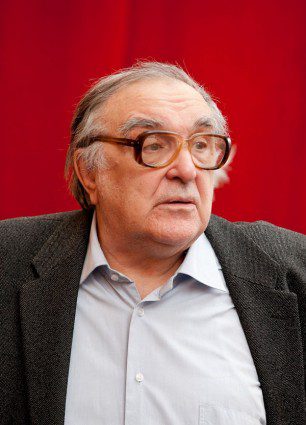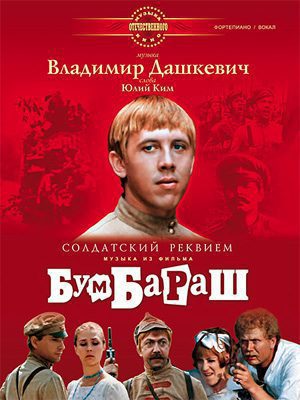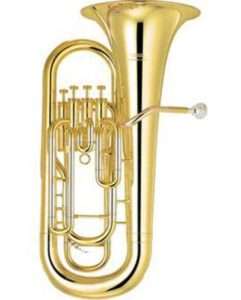
Vladimir Dashkevich – Well, of course – this is Bumbarash!
The article is dedicated to the composer Vladimir Dashkevich and his wonderful music for the film “Bumbarash”. An interesting and unusual attempt was made to compare the music of the film with the life and work of the composer.
 The film genre allows you to build or connect/edit various and distant events. But then this should also apply to “near-cinema” phenomena. This idea is worth checking out, especially since there is film music written not just with talent, but even with genius. And there is no exaggeration in this.
The film genre allows you to build or connect/edit various and distant events. But then this should also apply to “near-cinema” phenomena. This idea is worth checking out, especially since there is film music written not just with talent, but even with genius. And there is no exaggeration in this.
We will talk about the film “Bumbarash” (dir. N. Rasheev and A. Naroditsky) with music by composer Vladimir Dashkevich. Those who are familiar with Dashkevich’s music will certainly agree that this is a very extraordinary musical phenomenon.

It is also worth recalling that the composer composed music for the famous series about Sherlock Holmes and Dr. Watson, and for the film “Heart of a Dog” (based on M. Bulgakov). The theme from the film “A Drop in the Sea” became the theme song for the famous children’s TV show “Visiting a Fairy Tale,” and the music for “Winter Cherry” is also immediately recognizable. And that’s all – Vladimir Dashkevich.
About myself, but through film music
And Dashkevich’s music for the film “Bumbarash” allows you to do the following trick: through musical numbers, find comparisons, parallels and correspondences with life and musical events and facts related to the composer.
We won’t talk about a downright literal, one hundred percent coincidence, but there is something. And, of course, we cannot help but say about Valery Zolotukhin, whose acting and vocal skills surprisingly coincided with the songs of Vladimir Dashkevich based on the poems of Yuli Kim.
The song “The Horses Are Walking” is generally the leitmotif of the entire film and, more broadly, of the composer’s fate. Because both Bumbarash and Dashkevich had a lot of “steep banks” in their lives.
You can listen to Lyovka’s song “A Crane Flies in the Sky” and remember Dashkevich’s difficult and winding path to music. He first received a diploma in chemical engineering, and only the 2nd higher education in music made him a “real” composer.
Let “Crane” be reminiscent of the civil war, but the line “And my son had, oh, a long journey…” – this is definitely about the youth of Volodya Dashkevich, about his studies and “wanderings” with his parents throughout the vast country. The lines “Where have I been… and looking for an answer” will remind you that Dashkevich, after Moscow, where he was born, had to visit Transbaikalia (Irkutsk), the Far North (Vorkuta), and Central Asia (Ashgabat). And yet the return to Moscow took place.
Why is fate like this?
The fact is that Vladimir Dashkevich is of noble origin, and his father, being a truly educated man, a nobleman and a Russian patriot, joined the Bolsheviks after 1917. But the Dashkevich family had plenty of life trials.
Therefore, it is quite natural that the future composer received practical knowledge of geography, in addition to Russian, spoke 4 more languages, received a decent upbringing and was a truly educated person and a patriot of his country.
And in the 40-50s. of the last century, such people had a hard time; but, interestingly, having retained respect and love in Russian culture, Dashkevich does not fall into nostalgia and longing for the past, but perceives it with tenderness and a certain amount of irony and humor.

In any case, these musical numbers from the film “Bumbarash” can tell exactly this:
- “Russian Positions” – toy-doll memories of the past;
- Sophia’s romance “In a white dress…”;
- chansonette Sophia (instrumental);
- the death of Sophia – such music cannot be written without knowledge of the traditions of the past.
And the following music will tell you that Dashkevich is well aware and familiar with the musical traditions of the new post-revolutionary and post-war Russia:
- “Village suffering”;
- “Village-Jewish square dance”;
- “March of the Fourth Company.”
- Here you can reflect and draw the following conclusions. The film “Bumbarash” is based on the early works of the writer Arkady Gaidar. There were also tragic events in Gaidar’s life, but we perceive him, first of all, as a bright, kind children’s writer. Many of his heroes are described exactly this way, and so is Bumbarash.
- This attitude towards life as a bright, joyful and sublime holiday is fully inherent in the composer Vladimir Dashkevich.
- And sad and tragic events both in Gaidar and in Dashkevich’s music are often dissolved and immersed in an atmosphere of sublime and bright sadness, everyday humor and some distance from tragedy.
- Therefore, it is still difficult to call the war songs from “Bumbarash” fully military, since they always contain a certain amount of elegant and subtle humor.
And Vladimir Dashkevich, as an artist, musician, citizen of his country, a cultured and widely educated person, simply does his job well: he composes brilliant music, writes theoretical works about music, and reflects. He plays chess (he became a candidate for master of sports), meets with listeners and simply lives a full, eventful life.

Very funny ending
Funny, because the assessment of more than 50 years of work by composer Vladimir Dashkevich is reflected in the fact that he is just an Honored Artist of the Russian Federation. And translated into normal language it sounds like: “Yes, there is such a composer Vladimir Dashkevich, and he writes good music.”
And Dashkevich has already written music for more than 100 films and cartoons; he has created symphonies, operas, musicals, oratorios, and concerts. His books, articles and thoughts about music are serious and deep. And all this suggests that composer Vladimir Dashkevich is an extraordinary phenomenon in Russian musical culture.
However, another Soviet musical genius – composer Isaac Dunaevsky – was also for a long time just an Honored Artist of the RSFSR.
But history, including music history, sooner or later puts everything in its place, which means that a true understanding of the significance of the composer Vladimir Dashkevich is already close. When the composer himself talks about the creative process and many other things, it’s just interesting and fascinating.
And in Bumbarash’s songs “But I was at the front” and especially “I’m tired of fighting,” perhaps another life and creative principle of Vladimir Dashkevich is reflected: there is no need to prove anything, the music that has already been written will speak for itself!
You just need to hear it.
More collected works of Vladimir Dashkevich can be found at the link: https://vk.com/club6363908





